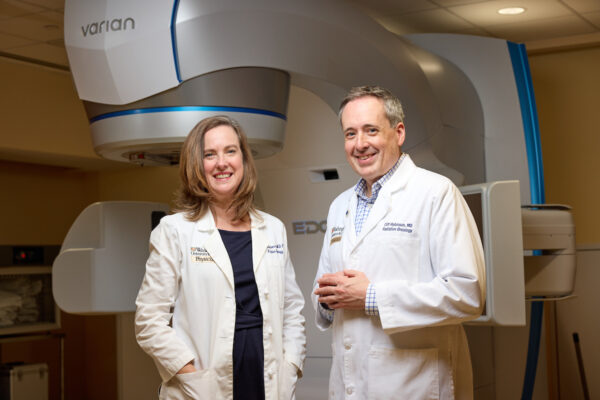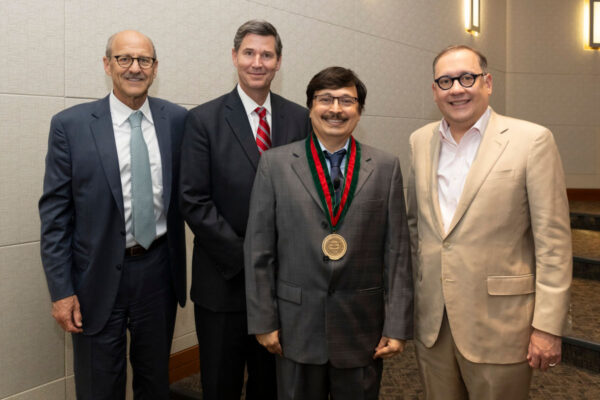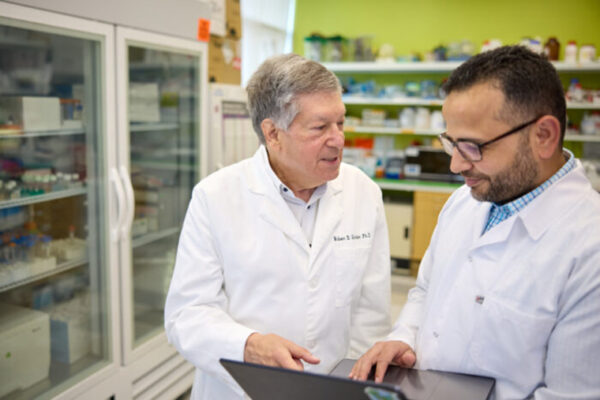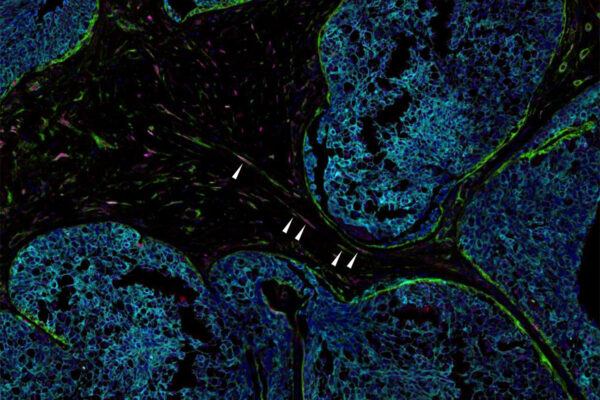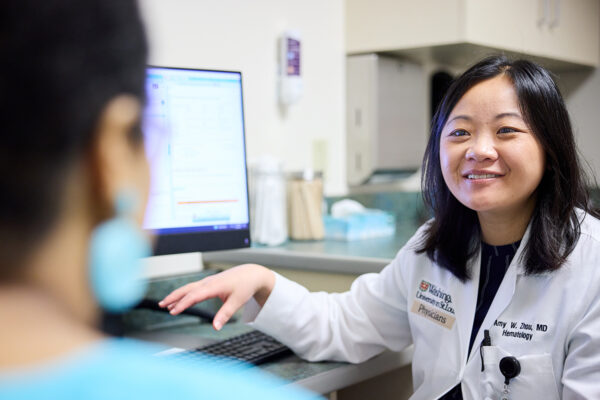Bolton, Mullen recognized for innovation in clinical investigation
Kelly L. Bolton, MD, PhD (right), and Maggie Mullen, MD, both at WashU Medicine, have received grants from the Damon Runyon Cancer Research Foundation for their respective patient-oriented cancer research.
Robinson, Schwarz recognized by radiation oncology society
Two professors of radiation oncology at Washington University School of Medicine in St. Louis — Clifford G. Robinson, MD, and Julie K. Schwarz, MD, PhD — have been named fellows of the American Society for Radiation Oncology.
New home for world-class cancer care opens on Medical Campus
Siteman Cancer Center, based at Barnes-Jewish Hospital and Washington University School of Medicine in St. Louis, soon will open a newly constructed nine-story, 657,250-square-foot building on the Washington University Medical Campus. The state-of-the-art building will be dedicated exclusively to outpatient cancer care and will welcome its first patients Sept. 30.
Li, Rutherford awarded St. Baldrick’s Foundation research grants
Washington University School of Medicine faculty members Mark Rutherford and Yang E. Li have won grants from St. Baldrick’s Foundation to study pediatric cancers.
Mahajan named Urologic Surgery Research Professor
Nupam Mahajan has been named the inaugural Urologic Surgery Research Professor at Washington University School of Medicine in St. Louis. Mahajan received the honor in recognition of his research advances on the genetic basis of prostate cancer.
Fehniger named to Lymphoma Research Foundation board
The Lymphoma Research Foundation has appointed Todd Fehniger, MD, PhD, a professor of medicine at Washington University School of Medicine in St. Louis, to its scientific advisory board.
Drug bypasses suppressive immune cells to unleash immunotherapy
Washington University School of Medicine researchers have found that the immune system can be its own worst enemy in the fight against cancer. In a new study in mice, they found that a subset of immune cells inadvertently dampens cancer immunotherapy.
Study reveals how brain cancer evolves in response to treatment
School of Medicine researchers have shown how brain tumors evolve in response to therapy, helping describe how such cancers develop treatment resistance that leads to the high mortality rate characteristic of this cancer.
Eliminating senescent cells could help treat breast, pancreatic cancers
Two studies from Washington University School of Medicine in St. Louis focused on breast cancer and pancreatic cancer suggest that specific types of senescent cells — cells that have stopped dividing and drive inflammation — may play important roles in suppressing the immune system and allowing such tumors to grow unchecked.
Amy Zhou
Hematologist Amy Zhou, MD, an associate professor at the School of Medicine, values the connections she makes with patients. She is also pursuing research to improve blood cancer treatments.
Older Stories

